Arun Nair
SPADE: Self-supervised Pretraining for Acoustic DisEntanglement
Feb 03, 2023
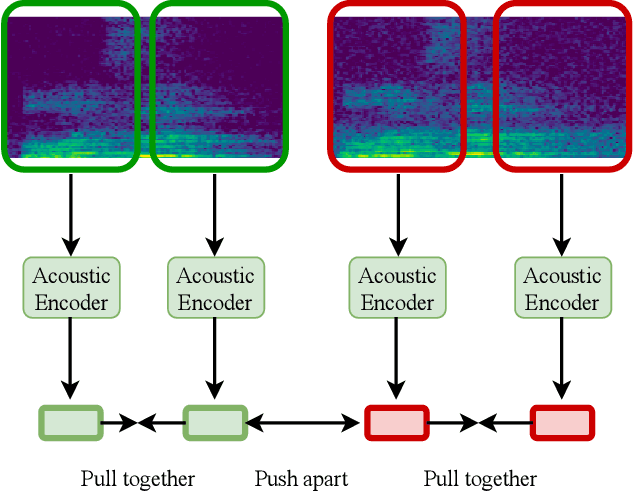

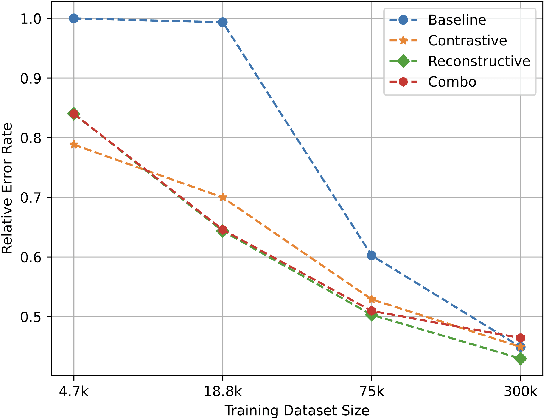
Abstract:Self-supervised representation learning approaches have grown in popularity due to the ability to train models on large amounts of unlabeled data and have demonstrated success in diverse fields such as natural language processing, computer vision, and speech. Previous self-supervised work in the speech domain has disentangled multiple attributes of speech such as linguistic content, speaker identity, and rhythm. In this work, we introduce a self-supervised approach to disentangle room acoustics from speech and use the acoustic representation on the downstream task of device arbitration. Our results demonstrate that our proposed approach significantly improves performance over a baseline when labeled training data is scarce, indicating that our pretraining scheme learns to encode room acoustic information while remaining invariant to other attributes of the speech signal.
Challenges and Opportunities in Multi-device Speech Processing
Jun 27, 2022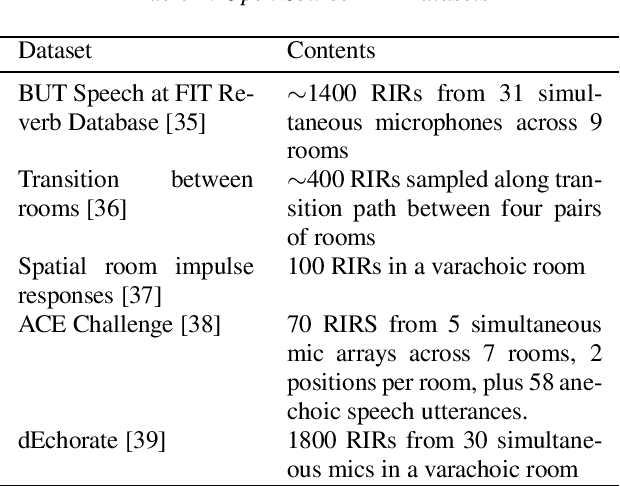
Abstract:We review current solutions and technical challenges for automatic speech recognition, keyword spotting, device arbitration, speech enhancement, and source localization in multidevice home environments to provide context for the INTERSPEECH 2022 special session, "Challenges and opportunities for signal processing and machine learning for multiple smart devices". We also identify the datasets needed to support these research areas. Based on the review and our research experience in the multi-device domain, we conclude with an outlook on the future evolution
Interspeech 2021 Deep Noise Suppression Challenge
Jan 10, 2021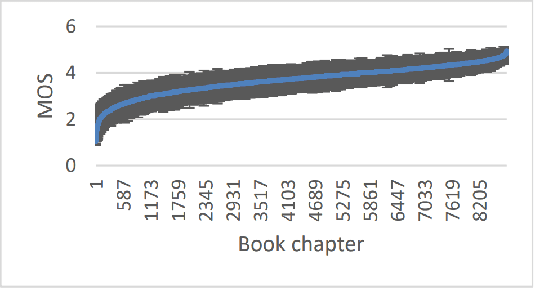
Abstract:The Deep Noise Suppression (DNS) challenge is designed to foster innovation in the area of noise suppression to achieve superior perceptual speech quality. We recently organized a DNS challenge special session at INTERSPEECH and ICASSP 2020. We open-sourced training and test datasets for the wideband scenario. We also open-sourced a subjective evaluation framework based on ITU-T standard P.808, which was also used to evaluate participants of the challenge. Many researchers from academia and industry made significant contributions to push the field forward, yet even the best noise suppressor was far from achieving superior speech quality in challenging scenarios. In this version of the challenge organized at INTERSPEECH 2021, we are expanding both our training and test datasets to accommodate full band scenarios. The two tracks in this challenge will focus on real-time denoising for (i) wide band, and(ii) full band scenarios. We are also making available a reliable non-intrusive objective speech quality metric called DNSMOS for the participants to use during their development phase.
Massively Parallel Methods for Deep Reinforcement Learning
Jul 16, 2015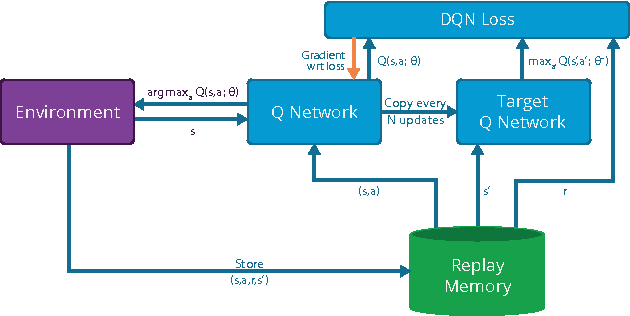
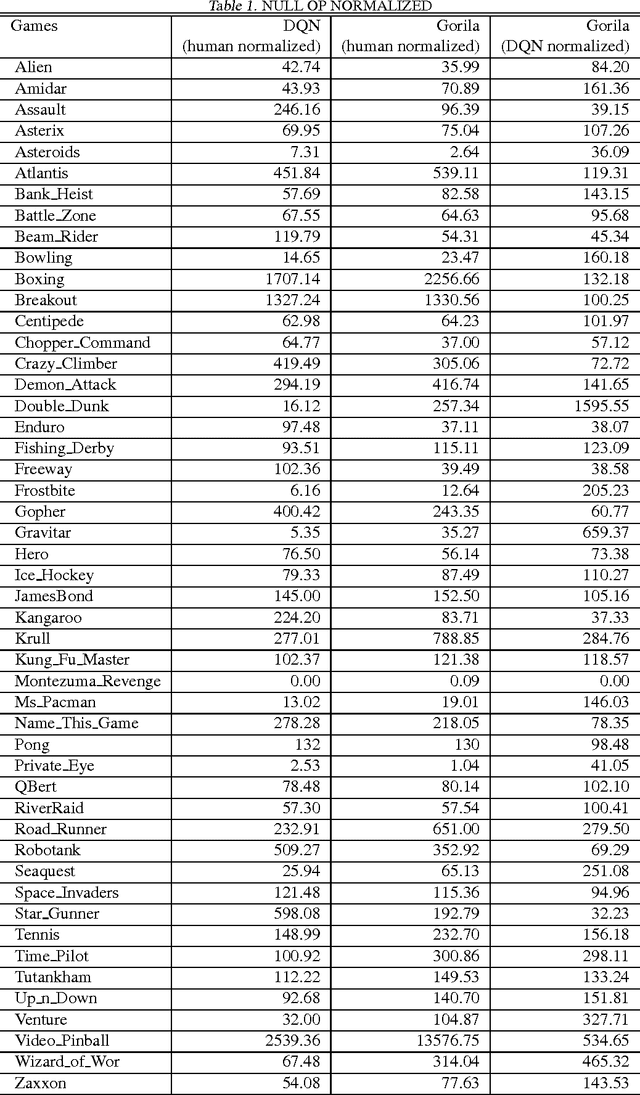
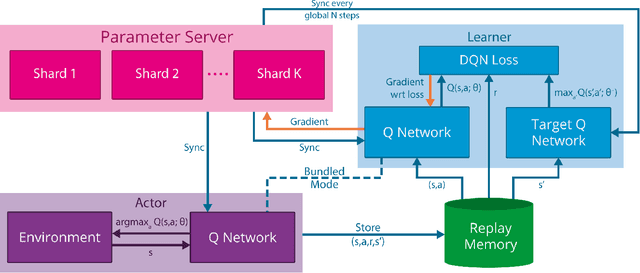
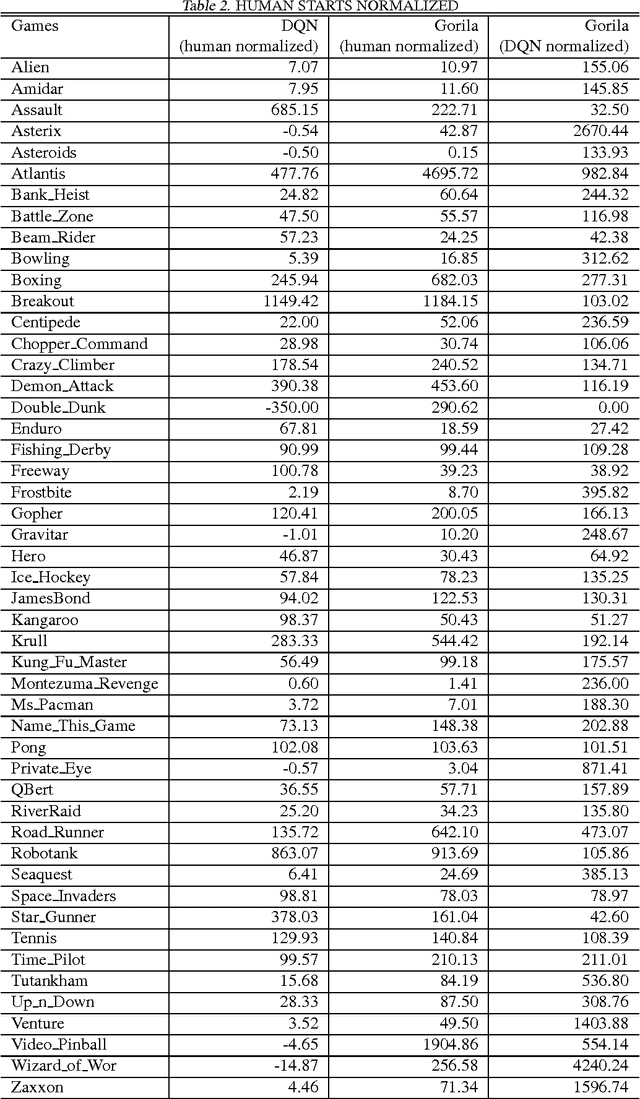
Abstract:We present the first massively distributed architecture for deep reinforcement learning. This architecture uses four main components: parallel actors that generate new behaviour; parallel learners that are trained from stored experience; a distributed neural network to represent the value function or behaviour policy; and a distributed store of experience. We used our architecture to implement the Deep Q-Network algorithm (DQN). Our distributed algorithm was applied to 49 games from Atari 2600 games from the Arcade Learning Environment, using identical hyperparameters. Our performance surpassed non-distributed DQN in 41 of the 49 games and also reduced the wall-time required to achieve these results by an order of magnitude on most games.
 Add to Chrome
Add to Chrome Add to Firefox
Add to Firefox Add to Edge
Add to Edge